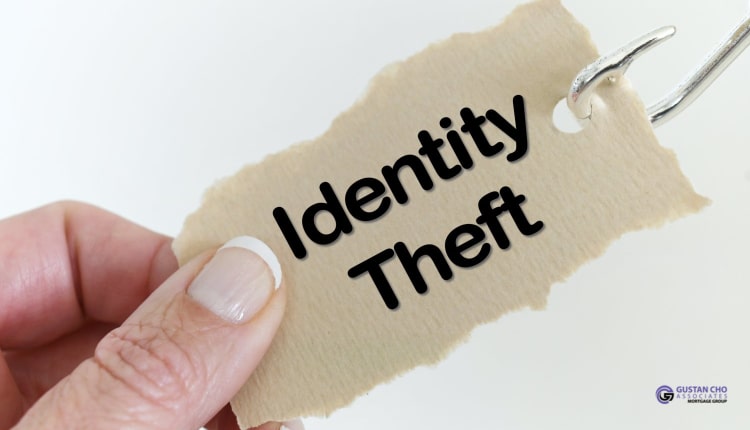Pre-Qualification vs Pre-Approval
In this guide, we will cover pre-qualification vs pre-approval homebuyers. A pre-qualification is a general informal approval to see if the borrower qualifies for a mortgage loan. A pre-approval is more in-depth than a pre-qualification. For example, a loan officer can have a fifteen to thirty-minute interview with the applicant and determine whether or not the applicant qualifies for a mortgage loan.
The loan officer will ask certain questions such as the borrower’s gross income, credit scores, liability, overtime or bonus income, derogatory credit tradelines, monthly debt payments, and other income and credit information. Whatever the borrower tells the loan officer, the loan officer will base the pre-qualification on the borrower’s statements.
If the borrower made a mistake, the pre-qualification could be null and void. With a pre-approval, the loan officer will pull a tri-merger credit report, request income and credit documents, review W2s and tax returns, and run the file through the automated underwriting system. This is why it is important not to enter a real estate purchase contract without a solid pre-approval letter.
Most borrowers often get confused about the difference between pre-qualification vs pre-approval. Sellers’ real estate agents will normally not accept an offer from a home buyer without a solid pre-approval letter. There is a big Difference Between Pre-Qualification Versus Pre-Approval.
A pre-qualification of a borrower is the first stage of the overall mortgage process. The first step in proceeding with the mortgage process is the pre-qualification stage. The pre-qualification process starts with the initial phone call to the loan officer. It is normally a phone interview.
Every loan officer has different ways of pre-qualifying a borrower. Some loan officers are more thorough with the way they pre-qualify a borrower. While other loan officers do not issue pre-qualification letters but skip this step and will pre-approve a borrower.
Difference Between Pre-Qualification vs Pre-Approval: How Long Does The Qualification Process Take
The pre-qualification process normally takes about 30 minutes:
- It is a series of questions that the loan officer asks the borrower
- Once a loan officer feels confident that the borrower pre-qualifies and fits a certain loan program, the loan officer can then issue a pre-qualification letter.
- Or move to the next step, which is getting the borrower pre-approved
- Questions asked during the pre-qualification mortgage process are the following
Difference Between Pre-Qualification vs Pre-Approval: How Do Loan Officers Qualify Borrowers

Here are the basic questions being asked during the pre-qualification mortgage process:
- What city, county, or state are you looking to purchase a home in?
- Get a formal mortgage loan application, 1003
- Complete 1003
While completing 1003, make sure to ask the questions below:
- Are you self-employed or a W-2 wage earner?
- Are you hourly or salaried?
Types of Income That Can Be Used For Mortgage Qualification
The loan officer will ask for any other source of income, such as the following:
- whether you get social security income
- receive pension income
- part-time income
- overtime income
- alimony income
- child support income
- or if you receive any other income, such as royalty income
For any other income, such as part-time, bonus, or overtime, a two-year seasoning requirement is required to use those types of income as qualified and verified income. The likelihood of three years must be likely through a Verification of Employment.
Income and Debts of Borrowers Determine Debt-To-Income Ratios
The loan originator will question minimum monthly debts. Auto loans, minimum credit card payments, minimum installment loans, student loan payments, deferred student loans, child support or alimony payments, and any other minimum monthly payments that show on your credit report are used in DTI:
- Are you the only borrower?
- Who is the co-borrower? (Ask the same questions about the co-borrower if the main borrower knows the information or if the main borrower does not know, take the information of the borrower and contact the co-borrower on a separate call)
- What is the market value of the homes that you are shopping for?
- Have you estimated property taxes in the area?
- Have you estimated homeowners insurance in the area?
- Are there community homeowners associations, AND what are the HOA dues?
- Is the location buyer shopping for homes in a flood zone
- Do you know what the flood insurance premiums homeowners are paying are?
- If the borrower does not know the above questions, the loan officer can normally get a good estimate of the above information.
- The above information is important to calculate the borrower’s proposed housing payment.
This is important in calculating the borrower’s debt-to-income ratio.
Shopping For Mortgage Lenders
During the pre-qualification mortgage interview, the loan officer will ask if the borrower applied at another mortgage company. And if so, what issues they had with the other lender?
- Questions about credit will be asked.
- Are some questions timely on all payments in the past 12 months?
- Prior bankruptcy, short sale, foreclosure, and deed-in-lieu of foreclosure
- If so, what are the dates
- Questions about judgments or tax liens
- Do you have any collections or charge-off accounts
- Do you have any credit disputes
- The loan officer will also check to see if purchasing a home is in a community property state.
- If so, the spouse’s debts must be included in calculating the debt-to-income ratio.
- This holds true even though the spouse is not on the mortgage loan
- The lender will then pull credit while you are on the phone to see if you meet the minimum credit score requirements
- A credit report does not reflect any derogatory items that can potentially affect the chances of getting pre-approved
The above is the pre-qualification process.
The Pre-Approval Process
The Difference Between Pre-Qualification Versus Pre-Approval is that the Pre-Approval mortgage process is the most important stage of the mortgage loan process. Dale Elenteny of Gustan Cho Associates said the following about pre-qualification vs pre-approval.
Over 75% of the borrowers who contact us are folks who either had a last-minute mortgage denial or are going through an extremely stressful mortgage process. The number only reason for this is because they were not properly qualified and pre-approved by their loan officer.
There is no reason a borrower with a solid pre-approval will go through a stressful mortgage process. There is no reason they should close their home loan and the loan on time. The pre-approval stage should be part two of the pre-qualification process.
Mortgage Processing and Underwriting
After the borrower has been pre-qualified, the loan officer should proceed to the next step. Request the documents required to process the mortgage. Thoroughly review the borrower’s credit report. Go over line item per line item and question the borrower if there are any discrepancies. Angie Torres, the National Operations Director at Gustan Cho Associates, said the following:
Review public records. Make sure that foreclosures and deed in foreclosures meet the mandatory waiting periods. Review short sale paperwork. Make sure that borrowers meet the mandatory waiting period after a short sale date.
Review 60 days of bank statements. Make sure there have been no overdrafts in the past 60 days. Check and double-check assets. Make sure that the borrower has enough cash to close. Make sure there have been no late payments in the past 12 months. If there are late payments, make sure to check with the underwriter.
See that it is okay even though you get an approve/eligible per AUS Findings. Check with the underwriter if a borrower has late payments after bankruptcy, foreclosure, or short sale. Make sure it is alright even though you get an approve/eligible per AUS FINDINGS. Most lenders will not lend to borrowers with late payments after Bankruptcy and Foreclosure. This holds true even though they have automated approval per Automated Underwriting System ( AUS ).
Qualifying Borrower’s Income and Employment Before Pre-Approval
If a borrower has irregular, overtime, bonus, or part-time income, make sure the loan officer will get a Verification of Employment. The reason is so that they are solid on the qualified income, especially for borrowers with higher debt-to-income ratios (DTI). Go over the borrower’s credit report with the borrower. Make sure there are no public records that the borrower is aware of that are not on the credit report.
Many times, judgments, foreclosures, short sales, deed in lieu of foreclosure, judgments, tax liens, delinquent government student loans, child support payments, and alimony payments are not reported on the borrower’s credit report. All public records will get discovered. This is because all lenders will run third-party national public records search through Lexis Nexis or Data Verify, and it will get caught, which can affect a mortgage loan clear to close.
There is a major difference between pre-qualification vs pre-approval. Pre-approvals may take some time, depending on how complex the borrower’s credit and financial situation is. It is better to take a few steps back and make sure the borrower is fully qualified before issuing a pre-approval.
This guide on pre-qualification vs pre-approval was updated on February 14th, 2023.











